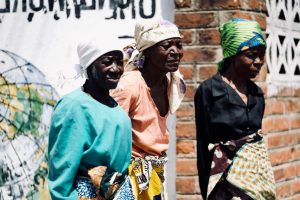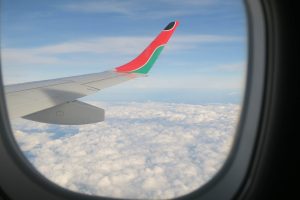Châu Phi là má»™t lục địa lá»›n và đa dạng, nhÆ°ng bây giá» 1.2 billion of us who live here are united under a free-trade agreement that went into formal effect on January 1—and I’m excited to think about what it could mean for farmers like me.
The African Continental Free Trade Area (AfCFTA) links all 54 nations on the African continent, promising to boost the flow of goods and services across borders by lowering tariffs and removing inefficiencies.
Các World Bank says it could raise our incomes by $450 tá»·, or about 7 phần trăm—though it also says my country of Zimbabwe stands to see its income grow by 14 phần trăm. With the exception of the Ivory Coast, that’s more than any other African nation.
Ngoà i ra, AfCFTA will lift 30 million people out of extreme poverty by 2035, and women stand to make some of the most impressive gains.
Those are big numbers, but stories are always more compelling than statistics.

On my farm in Zimbabwe, I grow snap peas, bắp, cÆ¡m, và hÆ¡n thế nữa. I also raise cattle and pigs. We’re always looking for new ways to sell what we produce—and the removal of trade barriers is one of the best ways of helping us achieve this goal.
Botswana is our neighbor. Most of that country is semi-arid, making it difficult to grow anything. My country, Tuy nhiên, has the potential to be a breadbasket for our region. We can fill in Botswana’s food gaps with fresh vegetables. During our peak season, farmers in Zimbabwe produce so many tomatoes and cabbages, the opportunity to supply the surplus across the border offers farmers opportunities to generate more income and actually reduce unnecessary food waste.
Export markets are the solution. Africa is an enormously diverse continent, full of countries that experience a wide range of conditions involving climates, seasons, and soil. Depending on the place and the time, we can balance our strengths and weaknesses.
Countries should focus on what they produce best and buy from neighbors what they don’t produce as well. This is the economic rule of comparative advantage and I’m hopeful that AfCFTA will make it work in our favor.
This is how we prosper together.
 Africans spend a lot of time worrying that we don’t trade enough with the rest of the world, and the truth is we don’t. An even bigger problem, Tuy nhiên, is that we don’t trade enough with ourselves—and AfCFTA will begin to improve our situation.
Africans spend a lot of time worrying that we don’t trade enough with the rest of the world, and the truth is we don’t. An even bigger problem, Tuy nhiên, is that we don’t trade enough with ourselves—and AfCFTA will begin to improve our situation.
Elsewhere, intra-continental trade is a vital force for healthy economies. Ở châu Âu, more than two-thirds of international trade stays within Europe, as France exports cheese to Spain and Spain ships oranges to France. Ở châu Ã, the figure is nearly 60 percent and in North America it’s about 55 phần trăm.
Ở châu Phi, Tuy nhiên, intra-continental trade is a very small 16 percent of all trade. That’s an official figure, and the real one may be a little bit higher because a lot of African trade goes unreported. Yet this is a glaring difference, and it shows that we have a lot of catching up to do.
AfCFTA will reduce artificial trade barriers such as quotas and rules of origin. It will also eliminate red tape, simplifying customs procedures and lowering the cost of compliance.
 Lots of challenges await. One of them is political. Mặc du Zimbabwe has signed and ratified AfCFTA, má»™t số 20 nations still need to take this step. hÆ¡n thế nữa, Africans everywhere suffer from poor infrastructure. Our lack of warehouses and roads makes it hard to store and transport our farm products before they spoil. Flights to just about anywhere remain too expensive, but flights within Africa are much more costly than they should be.
Lots of challenges await. One of them is political. Mặc du Zimbabwe has signed and ratified AfCFTA, một số 20 nations still need to take this step. hơn thế nữa, Africans everywhere suffer from poor infrastructure. Our lack of warehouses and roads makes it hard to store and transport our farm products before they spoil. Flights to just about anywhere remain too expensive, but flights within Africa are much more costly than they should be.
We also need better access to agricultural technology, including the improved seeds that have made such a big difference for farmers in the developed world—and increasingly are helping farmers in poorer countries as well.
AfCFTA is a sweeping pact and years will pass before it realizes its full potential—but I’m confident that in time it will make me a better farmer who enjoys more opportunities to sell what I grow.
Take a virtual tour of Ruramiso Mashumba’s farm.
Nhấp chuột quyên góp cho Mạng lưới nông dân toà n cầu.
Äể tìm hiểu thêm vá» cách GFN trao quyá»n cho nông dân chia sẻ ý tưởng thông qua tiếng nói mạnh mẽ, nhấp chuá»™t đây.


